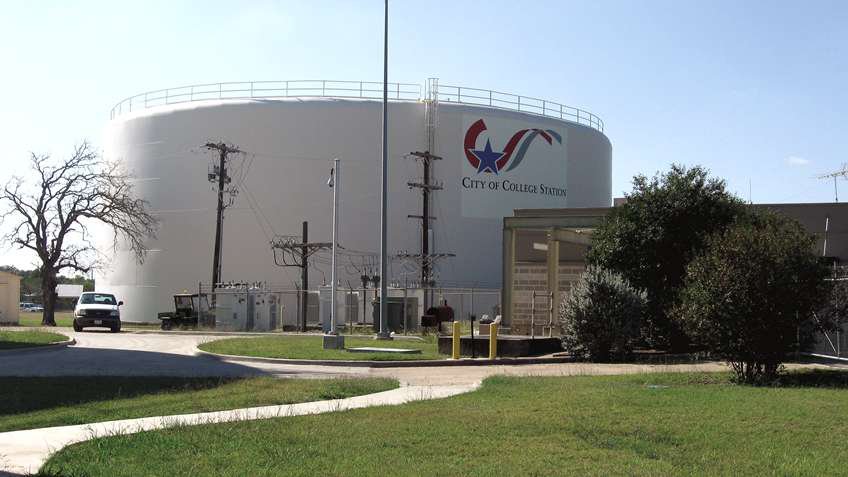Background
Home to the main campus of Texas A&M University, College Station, Texas has a population of nearly 100,000.
The city runs a groundwater production transmission system and wastewater treatment facility that services more than 100,000 people and produces up to 27 million gallons of water at peak demand during the summer.
Pumping groundwater from wells around the county, the College Station Water Services (CSWS) cools the water and transports it through water lines to a second pump station for further treatment. From there, water is transported into the distribution system and two elevated storage tanks.
Raw wastewater travels through a network of over 275 miles of wastewater collection lines to one of two award-winning wastewater treatment plants owned and operated by the city of College Station.
The complex process requires a sophisticated control system to help ensure efficiency and regulatory compliance.
Over the past two decades, CSWS has worked to increase city water production and delivery capacity, as well as improve the water quality and treatment process.
To help accomplish these goals, CSWS planned to replace outdated equipment with one integrated process control/SCADA system.
Challenge
In 2009, CSWS recognized the existing control hardware at their facility was reaching the end of its life cycle. With risk of obsolescence, the system needed to be upgraded before it started to fail.
The facility ran 24 hours per day, and keeping equipment operational on a failing system was putting a strain on the technical support staff. CSWS ran on disparate systems, and issues were difficult to resolve due to multiple vendors, lack of local support, and absence of troubleshooting tools.
In addition to an antiquated control system, CSWS had been using the same human-machine interface (HMI) system for 15 years. “We had little to no access to real-time information with our outdated equipment,” said Mike Kellogg, SCADA systems analyst, CSWS.
“The industry was beginning to move toward integrated systems, and with our existing systems we were in jeopardy of being left behind.” Ultimately, CSWS needed a way to better visualize and understand its optimum operating conditions.
An information-enabled system would help the city see how changes over time – such as environmental and population fluctuations – were impacting water production, and would help the city proactively respond to those changes.
Solution
City-owned utilities are required by law to take three competitive bids to ensure the best value for taxpayer dollars.
“We researched several vendors before making our selection,” said Kellogg. “Ultimately, we chose to work with Rockwell Automation on our process control system upgrade, and leverage its PartnerNetwork™ program and technical support team.”
CSWS worked with Rockwell Automation to implement a single, plantwide SCADA solution phased-in over four years. The PlantPAx solution integrates all operations - process, discrete and motor control – into one system to help increase efficiencies and productivity across CSWS’s entire operation.
The PlantPAx system is based on open communication standards leveraging EtherNet/IP™ as its backbone. Designed and established to connect across applications, from the instrumentation level up to CSWS’s IT infrastructure, EtherNet/IP streamlines control and information flow, and offers the best pathway to single network architecture.
It also provides site operators with remote access, real-time diagnostics and electronic documentation to help minimize downtime and improve equipment performance.
CSWS replaced its two-speed pumps with variable frequency drives on cooling fans, water service pumps, lift pumps, biofeed pumps, centrifuges and wasting pumps.
The drives gradually ramp the speed of the motor up and down to help save energy, and help extend the life of the motor and related equipment. They are configured to provide additional production data by gathering information at the drive level and automatically dispersing it to any part of the plant through the PlantPAx system.
